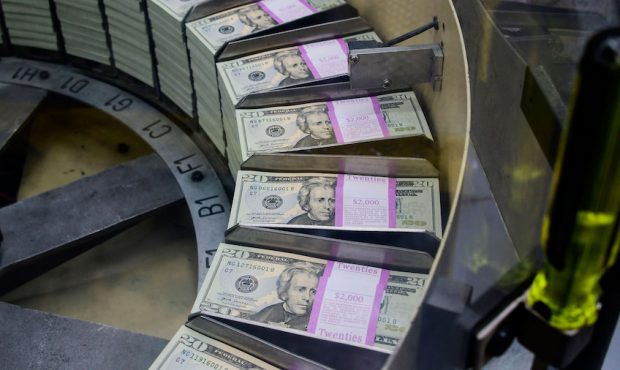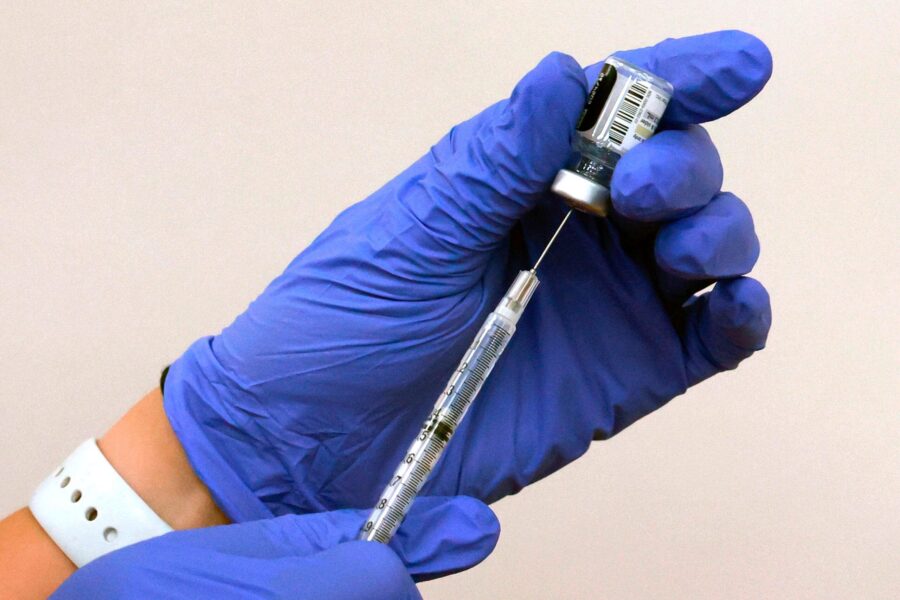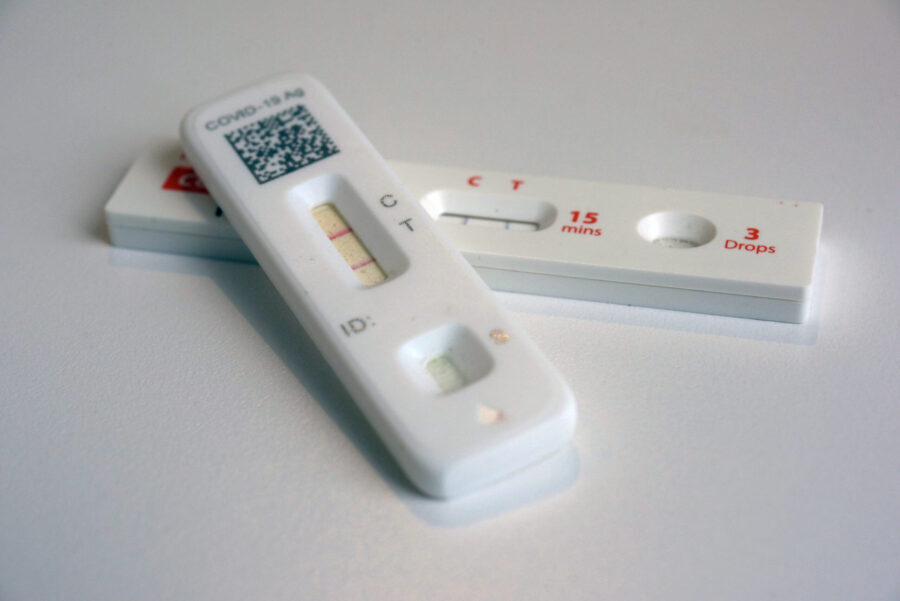Computer Issues At SBA Said To Hold Up Small Business Loans
Apr 7, 2020, 10:10 PM

Packs of freshly printed 20 USD notes are processed for bundling and packaging at the US Treasury's Bureau of Engraving and Printing in Washington, D.C. (EVA HAMBACH/AFP via Getty Images)
(EVA HAMBACH/AFP via Getty Images)
NEW YORK (AP) — Small business owners hoping for quick help from the government’s emergency $349 billion lending program were still waiting Tuesday amid reports of computer problems at the Small Business Administration.
The SBA’s loan processing system stopped working Monday, making it impossible for loans to be approved and funds distributed, according to a trade group for community bankers and the CEO of an online lending marketplace. And there was confusion about the documents lenders needed from customers to complete loan transactions, they said.
“We are getting thousands of applications but many of our members can’t get into the SBA’s system or there are additional holdups,” said Paul Merski at the Independent Community Bankers of America.
Thousands of companies are at risk of failure without a cash infusion. Even those that have laid off their staffs face bills like rent, mortgage payments, insurance, utilities and taxes. Many companies that are still working have lost revenue as their customers turned cautious and canceled orders or projects.
SBA spokeswoman Carol Wilkerson said Tuesday afternoon that there have been more than 275,000 applications received for loans valued at $75 billion since the program launched. Treasury Secretary Steven Mnuchin had predicted last week that loans could be turned around and money transferred to businesses’ bank accounts the same day as applications were received.
Wilkerson did not address a question about whether the agency’s computer system was functioning properly.
A large percentage of community banks — small banks that serve rural areas and small towns — have been unable to get logged into the system as well. Two small bank CEOs pleaded with President Trump on Tuesday in a conference call to get the smaller banks approved.
“We have been boxed out of the program,” said Noah Wilcox of Grand Rapids State Bank.
The loans of up to $10 million to business owners and freelancers under what’s called the Paycheck Protection Program are intended to help companies retain workers or rehire those laid off as businesses shut down across the country. Nearly 10 million Americans applied for unemployment benefits in the last two weeks of March, many of them let go by restaurants and retailers.
The loans offer forgiveness if the proceeds are used for workers’ pay, and payments can be deferred for six months.
Owners have also run into problems applying to banks. Some banks, including JPMorgan Chase and Citibank, two of the nation’s largest, were still telling customers Tuesday that they weren’t ready to accept applications. Others, including Wells Fargo, have turned away applicants because they reached their lending limit.
Many banks refused applications unless companies were established customers — some were requiring companies to have deposit accounts and loans in order for the application to go through. The banks have come under criticism that they are making loans just to existing customers, but bankers have said the documents required to verify new customers’ identities require time and resources they currently do not have.
Mnuchin said Tuesday the Trump administration would ask Congress for an additional $250 billion for the program. When the program was announced, Mnuchin said Treasury would ask Congress for more if it was needed.
The SBA tweeted Monday that one company, a coffee shop operator based in Wilmington, North Carolina, had received its money. Amy Wright, the owner of Bitty & Beau’s Coffee, said Tuesday that she was a longtime customer at Live Oak Bank, one of the nation’s largest lenders to small businesses.
Brock Blake, CEO of Lendio, a marketplace for loans, also said he was hearing complaints about the SBA’s computer system from bankers. He tried to put customer applications in himself as a test.
“I tried to submit one application in the morning and it was circling for eight hours. I couldn’t submit hundreds of applications,” Blake said. He described his company as similar to the travel website Expedia, where visitors can find deals that are a good fit for them.
There also was confusion about loan documents; the terms of the loans are different from standard SBA loans and therefore new documents would be needed. Each loan requires a “note” — a legally binding contract between the lender and borrower — but the industry hasn’t gotten guidance on whether to use their own language in the notes or use the government’s language. One legal slip up could make a loan ineligible for the program.
Many owners were also waiting to hear whether they’d get economic injury disaster loans, separate from the paycheck loans. Those loans can take weeks to process, but the government had promised that companies could get $10,000 grants within days of applying.











